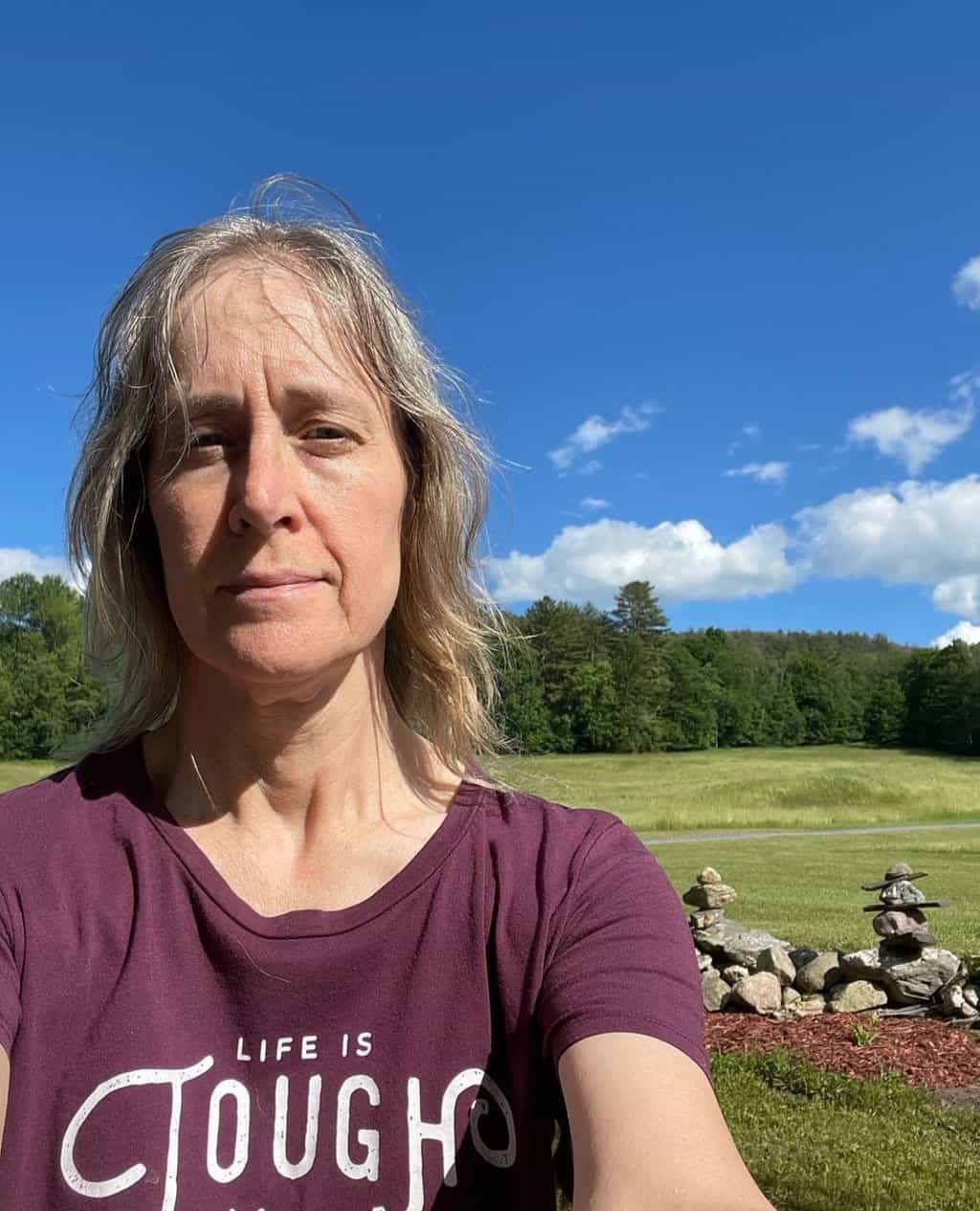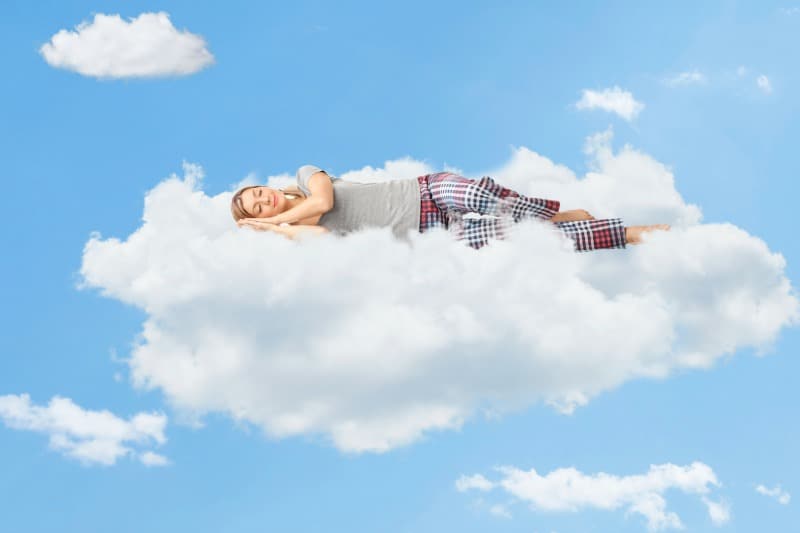Last Updated on April 9, 2021 by Ellen Christian
I recently shared a few supplement-based tips that people with IBS or IBS-related symptoms can try to improve their symptoms naturally. This week, I wanted to continue the discussion by talking about sleep-based tips to improve IBS symptoms. Thank you again to HealthyCare.me for sponsoring this conversation.
Posts may be sponsored. This post contains affiliate links, which means I will make a commission at no extra cost to you should you click through and make a purchase. As an Amazon Associate I earn from qualifying purchases.
4 Sleep-based Tips to Improve IBS Symptoms
There is growing research about the relationship between sleep and IBS. Sleep disorders, including not getting enough sleep, are even more common in people with IBS than the general population. IBS affects sleep quality and duration, which then amplifies IBS symptom severity. This negative, reinforcing cycle can result in a frustrating decline in general health and increased risk for other health disorders.
The importance of sleep for optimal health is very important. There has been an increasing awareness that insufficient sleep is a significant problem in across our society. Numerous studies have shown people are getting less sleep than 20 years ago, with at least one out of three people regularly sleep less than the recommended 7-8 hours each night (for adults).
To sleep better and see an improvement in your IBS symptoms, try following these 4 evidence-based recommendations.
Set a Routine
Start winding down an hour before bed and do the same things at the same time to prepare. For example, read, shower, brush teeth, journal. Your body will learn to associate that routine with sleep. Go to sleep (preferably between 9-11 PM) at the same time each night and wake up at the same time each morning. Again, your body will become habituated to this cycle.
Limit Caffeine, Alcohol, and Nicotine
Limit your caffeine to two cups during the day and absolutely no caffeine at least four hours before bed. This includes sodas and other caffeinated treats. Limit alcohol and nicotine as they will impact falling and staying asleep.
Put Down the Screen!
Try to separate yourself from phones, tablets, and laptops at least an hour before bed. Some of the most successful people in the world do not take their devices into the bedroom. The light from the screens reduces melatonin levels, which inhibits sleep, and the content makes it difficult to slow your mind.
Set the Environment
Make your bedroom an oasis of comfort, quiet and darkness. Reduce the temperature, light and noise for best results. Keep pets out of the room if they disturb you. Turn your clock around (especially if you are a clock watcher).
Conclusion
If you find you are still struggling to get enough good quality sleep, there are many other options. Relaxation techniques, cognitive behavioral therapy and limited use of some natural supplements can help.
HealthyCare’s IBS Program includes many of these other options, along with the support of psychologists to answer your questions and help you self-manage your IBS without the significant cost or inconvenience of ongoing office visits, classes, or therapy.
HealthyCare’s free trial of their evidence-based online IBS program includes everything most people need to feel better: instructive video-based content, a community of peers with IBS to share best practices, and an MD-led, integrative healthcare team to answer your questions. Natural healthcare for your IBS, online and at your fingertips.

Ellen is a busy mom of a 24-year-old son and 29-year-old daughter. She owns six blogs and is addicted to social media. She believes that it doesn’t have to be difficult to lead a healthy life. She shares simple healthy living tips to show busy women how to lead fulfilling lives. If you’d like to work together, email info@confessionsofanover-workedmom.com to chat.


I never knew that IBS symptoms could be related to sleep disorders . I will relate this info to some family members who would appreciate it.
Thanks for sharing, Maryann!
I am blessed not to have sleep problems but did many years ago, so I know that struggle. I am frequently viewing screens late at night, having a deadline, trying to get work done, but so far it does not bother my sleep. They have some blue light-blocking glasses I’m going to research, that may help. I take a quarter of a 3 mg melatonin tablet (just cut it myself) and swear by it. I don’t seem to need much and I fall right asleep when my head hits the pillow. Camomile tea me helps as well. Sleep is so important!
I sleep fairly well myself, Deb, but my husband struggles with it. It can play a huge part in overall wellness.